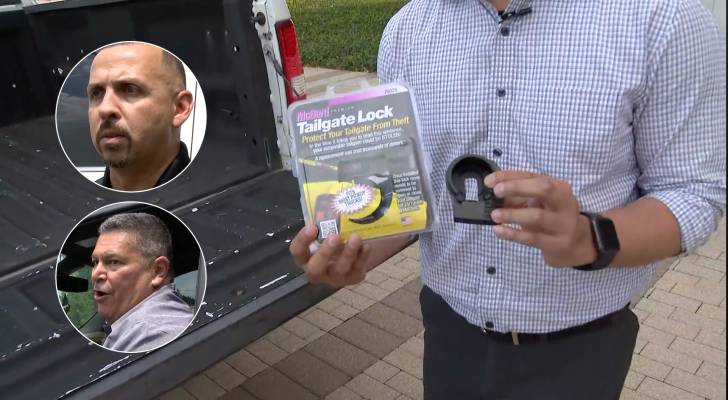‘Those folks that were involved… will be held accountable:’ A scammer stole $800K from a Florida school board by faking a vendor email. Here’s how to avoid the same trap


A scammer pretending to be a construction vendor tricked the Citrus County School Board in Inverness, Florida, into sending more than $800,000 to the wrong bank account. The fraud wasn’t discovered until the real vendor called to say they hadn’t received their payment. According to the Citrus County Sheriff’s Office, $846,864.86 was intended for a […]
New Jersey residents fear losing their ‘slice of heaven’ amid city’s plans to build new pickleball and tennis courts with no parking — here’s how to say your piece when your peace is at risk


Edison Woods Park is tucked away in a quiet residential pocket of Edison Township, New Jersey. It’s so quiet that many locals don’t even know it’s there, and residents who live around the park say that’s exactly why they love it. “It’s our little slice of heaven,” one neighbor told NBC 4. Now, residents are […]
‘It’s misery’: Long Island family says contractor gutted their home and vanished after $96K payment — now they’re living in a camper and facing thousands in losses


Deanna Salentino and her family were very excited to upgrade their home on Winston Court in Shoreham, New York. Instead, Salentino, her husband and their three children are now living in a camper parked in their backyard. “It’s misery,” she told News 12. “And I thought I was supposed to be moving into my house […]
This North Carolina woman paid $320K for a custom home only to end up with 2 partial, rotting walls — and her real estate agent is suffering the consequences, too
Following years of complaints, North Carolina real estate agent Joy Cotto had her real estate license suspended for two years, reports Queen City News. Homeowners allege Cotto sold them land lots and hired her husband, Mario Cotto, to build new construction houses, but these were never completed. “Joy is selling lots and new construction homes […]
‘People are fed up’: Michigan residents demand state utility provider stop raising rates as hike request to raise bills by $13/month heads for review — the 4th major increase in 5 years
Residents who recently attended a Michigan Public Service Commission (MPSC) meeting have one unified message for DTE Energy: enough with the rate hikes. "People are fed up," Donavan McKinney, a Michigan state representative, shared with WXYZ Detroit. “They cannot afford more rate increases. People are struggling as is.” Don’t miss I’m 49 years old and […]
Secret Service works to crack down on criminals who’ve been ‘stealing food from the mouths of children’ — how the crime works and what to do to avoid it


A special multi-agency operation took place in parts of Tennessee and Mississippi to fight a growing and costly form of fraud — one that can directly impact families in need who rely on electronic benefit transfers (EBT) to get by. From July 8-9, the Secret Service, along with local law enforcement officers, launched a coordinated […]
Canadian man allegedly scammed multiple seniors out of $309K by going door to door to demand cash — and police believe there may be more victims. Here are the signs to watch out for


Charlestown police have arrested a man in southern Indiana in connection with a scam that targeted older American victims across several states. Authorities say an older Charlestown resident was tricked into withdrawing $27,000 from his retirement accounts and handing the cash over to a man who showed up at his front door on May 5. […]
This Chicago couple was locked out of their home for a month after a strange woman moved in her family, pet dog — and they nearly had to take the squatter to court to get their home back


Marcia and Carlton Lee’s month‑long property nightmare on Chicago’s South Side is finally over. The couple have reclaimed their vacant house — one they’re trying to sell — after police arrested and removed a stranger who moved in with her family, with paperwork to suggest she owned it. "I knew the ID was fake," Marcia […]
This Pennsylvania woman got a $12K utility bill — after waiting months for her statement. And lawmakers now say PECO isn’t acting fast enough for the thousands left in a similar situation


Posiey Brown of Norristown, Pennsylvania, was floored when she opened her PECO energy bill in April — totaling $11,723.93 in charges. “There’s no way,” she recalled thinking to CBS News Philadelphia in a story published May 30. It was the first utility bill she had seen in months, and the amount was much higher than […]
A Houston man saw his stolen tailgate online and called the police — and it led to a massive bust of blank key fobs. How these devices are helping car thieves get away in a matter of minutes


An investigation into stolen pickup truck tailgates has uncovered a deeper, more alarming trend in Houston: thieves are using high-tech tools to clone key fobs and drive away with vehicles in under eight minutes. According to the Harris County Sheriff’s Office, victims whose tailgates were stolen worked together to track down the suspects by searching […]
